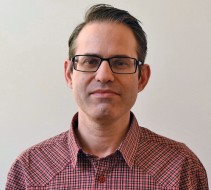Daniel Pargman

Associate professor in media technology specialized in sustainability at the Department of Media Technology and Interaction Design at KTH Royal Institute of Technology, Stockholm, Sweden
Daniel Pargman is an associate professor in media technology with a specialization in sustainability at the Department of Media Technology and Interaction Design at KTH Royal Institute of Technology in Stockholm, Sweden.
His research interests are situated in the intersection of computing and sustainability and in understanding the role of ICT in decreasing CO2 emissions and in speeding up the necessary shift to a more sustainable society.
The two overarching questions that guide his research are: (1) What happens when exponential developments in computing bump into sustainability-related limitations (for example in terms of the material footprint of ICT or the CO2 emissions from manufacturing and use)? (2) What is the role of ICT in the transformation to a more sustainable society (where people can live good lives within planetary boundaries?
His research interests are situated in the intersection of computing and sustainability and in understanding the role of ICT in decreasing CO2 emissions and in speeding up the necessary shift to a more sustainable society.
The two overarching questions that guide his research are: (1) What happens when exponential developments in computing bump into sustainability-related limitations (for example in terms of the material footprint of ICT or the CO2 emissions from manufacturing and use)? (2) What is the role of ICT in the transformation to a more sustainable society (where people can live good lives within planetary boundaries?
Talk: Computing within Limits
Almost all research in computing is premised on industrial civilization’s default worldview in which ongoing economic growth is both achievable and desirable. This growth-focused worldview is however at odds with findings from many other scientific fields which see economic growth as problematic for ecological and social reasons, as well as for attaining the 2015 Paris Agreement, where 189 signatories agreed on the goal of keeping the average global temperature increase “well below 2°C” (e.g. aiming for an average 1.5°C temperature increase above pre-industrial levels). The Computing within Limits workshop and community has since 2015 explored ways that computing can support human well-being, while enabling human civilizations to live within global ecological and material limits. What then is the impact of present or future ecological, material, energetic, and/or societal limits on computing - including for AI, machine learning, data management, data science, IoT etc.?
Watch the talk here !
View the slides here !
